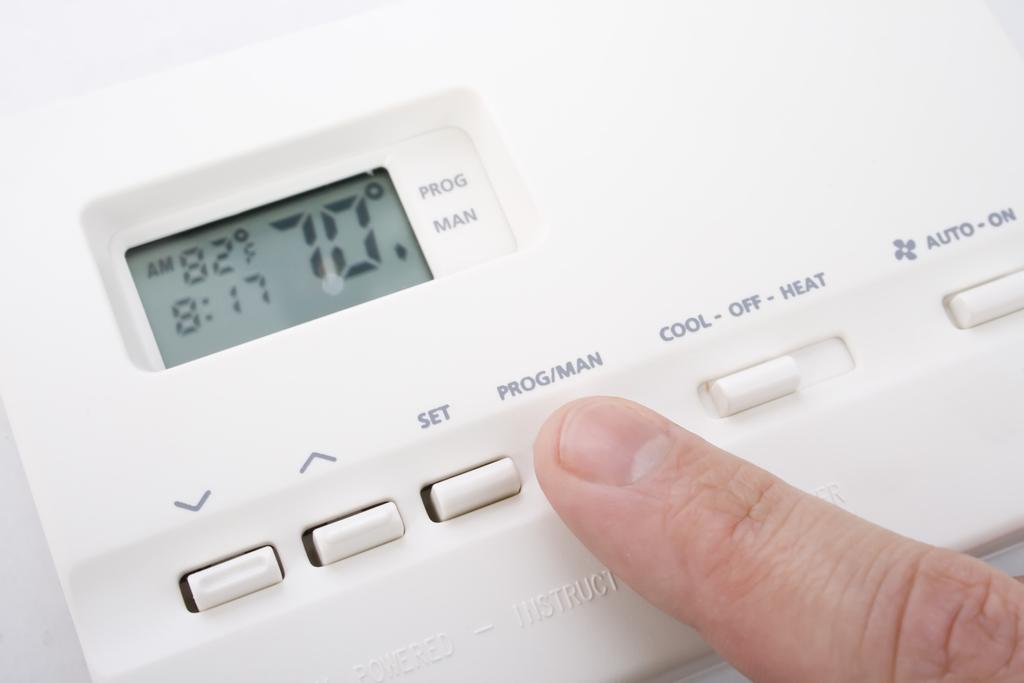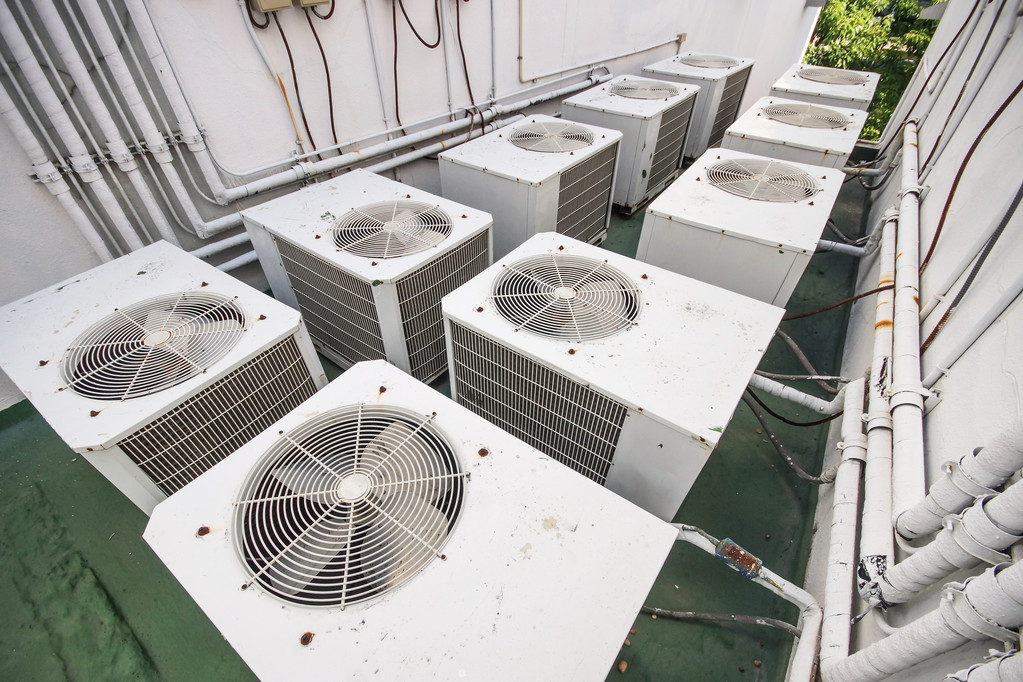
Improving the efficiency of your HVAC system is not only good for the environment but also essential for reducing energy costs and ensuring optimal performance. Many people assume that upgrading or replacing their HVAC system is the only way to achieve better efficiency, but there are plenty of cost-effective methods to enhance its performance without a full replacement. With the right maintenance and adjustments, your HVAC system can run more efficiently, providing comfort year-round while keeping energy bills manageable. Let’s explore some of the best ways to improve HVAC efficiency without the need for a replacement.
1. Regular Maintenance and Cleaning
Maintaining your HVAC system is crucial to ensuring its efficiency. Dust, dirt, and debris can accumulate in various components of the system, particularly the filters, coils, and vents. These obstructions reduce airflow, forcing the system to work harder to heat or cool your home.
Change air filters regularly: HVAC filters trap dust, pollen, and other pollutants. Over time, these filters become clogged, restricting airflow. Experts recommend changing your filters every one to three months, depending on usage and whether you have pets.
Clean coils: The evaporator and condenser coils are responsible for heat exchange in your HVAC system. Dirty coils reduce the system’s ability to absorb and release heat, making it work harder and less efficiently.
Inspect and clean ducts: Leaky or clogged ducts can lead to uneven heating or cooling and increased energy consumption. Ensure that your ductwork is inspected and cleaned at least once a year to maintain optimal airflow.
2. Seal Leaks in Ductwork
Leaky ducts are one of the most common causes of energy inefficiency in HVAC systems. When ducts leak, heated or cooled air escapes into unconditioned areas like attics, crawl spaces, or basements, leading to wasted energy.
Sealing duct leaks can improve system efficiency by as much as 20%. You can use mastic sealant or metal-backed tape to close gaps and cracks in duct joints. For larger issues, professional duct sealing might be necessary to ensure that your HVAC system is working efficiently.
3. Install a Programmable or Smart Thermostat
One of the easiest ways to improve HVAC efficiency is by installing a programmable or smart thermostat. These devices allow you to set specific temperatures for different times of the day, ensuring that your system isn’t running unnecessarily when you’re not home.
A smart thermostat takes it a step further by learning your temperature preferences and adjusting automatically. Many of these thermostats also allow you to control your HVAC system remotely via an app, giving you the flexibility to adjust settings even when you’re away. This reduces the overall workload on your system and can lead to significant energy savings.
4. Improve Insulation
Proper insulation plays a vital role in your HVAC system’s efficiency. Poorly insulated homes allow hot or cold air to escape, making your system work harder to maintain the desired temperature. By improving insulation in areas like attics, walls, and floors, you can minimise heat transfer and reduce the strain on your HVAC system.
Start by inspecting areas where drafts might occur, such as around windows, doors, and electrical outlets. Use weatherstripping or caulk to seal gaps and improve insulation. Also, consider adding extra insulation in your attic, as heat tends to escape through the roof.
5. Use Ceiling Fans
Ceiling fans can help improve the efficiency of your HVAC system by circulating air more effectively. In the summer, ceiling fans help distribute cool air, reducing the need for your air conditioner to run constantly. In the winter, reversing the direction of your ceiling fan can push warm air back down into the living space, allowing you to lower the thermostat without sacrificing comfort.
By using ceiling fans in conjunction with your HVAC system, you can maintain a comfortable temperature while reducing energy consumption.
6. Block Out the Sun
Solar heat gain can increase indoor temperatures and cause your HVAC system to work harder, especially in the summer. By blocking out direct sunlight, you can reduce the amount of heat entering your home and relieve your air conditioner’s workload.
Consider installing reflective window films, shades, or blinds to block the sun’s rays. You can also plant trees or install awnings to provide shade for windows exposed to direct sunlight. By reducing solar heat gain, you can improve your HVAC system’s efficiency and keep your home cooler without overworking the system.

7. Optimise Your Thermostat Settings
Another simple way to improve HVAC efficiency is by adjusting your thermostat settings. During the summer, aim to keep your thermostat at around 78°F (25°C) when you’re home and 85°F (29°C) or higher when you’re away. In the winter, set it to 68°F (20°C) when you’re at home and 60°F (15°C) when you’re not.
By making small adjustments to your thermostat settings, you can significantly reduce the workload on your HVAC system, ultimately saving energy and reducing costs.
8. Keep Vents and Registers Clear
Blocked vents and registers can cause airflow issues, making your HVAC system work harder to circulate air throughout your home. To ensure proper airflow, make sure that furniture, curtains, or rugs are not obstructing vents. Keeping vents and registers clear will allow your system to operate more efficiently and maintain consistent temperatures.
9. Upgrade to Energy-Efficient Windows
Windows play a significant role in your home’s insulation and the overall efficiency of your HVAC system. Older windows tend to let heat escape during the winter and allow hot air to enter during the summer, causing your HVAC system to work harder.
Upgrading to energy-efficient windows can help reduce heat loss and gain, improving overall system performance. Look for windows with double or triple panes, low-E coatings, and energy-efficient ratings to help minimise the strain on your HVAC system.
10. Schedule Professional Tune-Ups
Finally, scheduling regular professional tune-ups is essential for keeping your HVAC system in peak condition. A certified technician can inspect and adjust your system to ensure that it’s running efficiently, identify potential issues, and address minor repairs before they become major problems.
During a tune-up, the technician will check the system’s refrigerant levels, clean coils and components, inspect the electrical connections, and calibrate the thermostat. Regular tune-ups can extend the life of your HVAC system and improve its efficiency, ultimately saving you money on energy bills.
Final Thoughts
Enhancing your HVAC system’s efficiency doesn’t always require a complete overhaul or expensive replacement. With the right maintenance, insulation, and strategic upgrades, you can keep your system running smoothly and efficiently for years to come. By sealing ducts, optimising your thermostat, and keeping vents clear, you can reduce the strain on your HVAC system and save on energy costs.
Whether you’re working with a Hobart mortgage broker or simply looking to lower your utility bills, improving HVAC efficiency is a smart way to maintain comfort while being mindful of energy consumption. Implement these tips, and enjoy a more efficient, longer-lasting HVAC system in your home.
